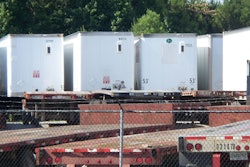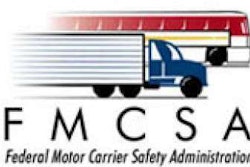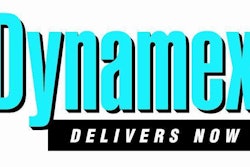The outsourcing of manufacturing to China and other countries due to labor costs will reverse over the next 20 years because of rising logistics costs – especially fuel – and the need for tighter supply chains, argues Kelly Dier, president of Marmon Highway Technologies (MHT). Speaking to trucking journalists at an MHT-only trade show event in Birmingham, Ala., on May 26, Dier – a 40-year veteran of the commercial vehicle manufacturing industry – predicted that diesel fuel prices would soar to the $6 to $7 a gallon within five years, forcing North American companies to source materials much closer to their plants.
“We’re going to reach a point where the way we have been running our business logistics will no longer make sense,” Dier says. “Today, it is common to source worldwide for cheap labor. But logistics costs are going to get so high that companies will have to develop much tighter supply chains. This is a total change from what has occurred for the last 20 to 30 years, but it’s a good thing, because it will bring a resurgence of manufacturing to North America.”
Dier is responsible for 13 MHT companies that supply the commercial vehicle and automotive markets: Fontaine Fifth Wheel, Fontaine Modification Co., Fontaine Spray Suppression, Fontaine Trailer Co., Marmon-Herrington, MHT−Europe, MHT−South America, Perfection, Triangle Suspension Systems, TSE Brakes, Webb Wheel Aftermarket, Webb Wheel OEM and Webb Wheel Transit. Currently, the companies source materials and parts worldwide.
MHT companies devote a great deal of time and effort to shortening their supply chains, Dier says. For at least one MHT company, transportation costs already exceed labor costs and are the second-highest cost of doing business.
In addition to saving fuel, tighter supply chains allow for more nimbleness, Dier says. For example, it currently takes 120 to 180 days for parts to come from China to the United States – a lead time that hurts U.S. truck component manufacturers’ ability to respond quickly to an uptick in orders, he says.
But don’t expect these changes to happen tomorrow, Dier cautions. “It’s going to be a hard transition,” he says. “North American machine shops, foundries and fabricators are gone and will have to be recreated. It’s going to be a 20-year process, but the result will be good for the businesses and citizens of the United States, Canada and Mexico.”











